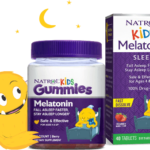What Is A Drug Overdose?

A drug overdose is defined as the ingestion or application of a drug or other substance in quantities greater than are recommended. The word “overdose” implies that there is a common safe dosage and usage for the drug; therefore, the term is commonly applied only to drugs, not poisons, even though many poisons as well are harmless at a low enough dosage.
Drug overdose deaths are a leading contributor to premature death and are largely preventable. Currently, the United States is experiencing an epidemic of drug overdose deaths. Since 2000, the rate of drug overdose deaths has increased by 137% nationwide. Opioids contribute largely to drug overdose deaths; since 2000, there has been a 200% increase in deaths involving opioids (opioid pain relievers and heroin).
What are the types of drug overdose?
Drug overdose are grouped into two major categories namely; unintentional or intentional.
Intentional misuse leading to overdose can include using prescribed or non-prescribed drugs in excessive quantities in an attempt to produce euphoria. Usage of illicit drugs in large quantities, or after a period of drug abstinence can also induce overdose. Cocaine users who inject intravenously can easily overdose accidentally, as the margin between a pleasurable drug sensation and an overdose is small.
Unintentional misuse can include errors in dosage caused by failure to read or understand product labels. Accidental overdoses may also be the result of over-prescription, failure to recognize a drug’s active ingredient or unwitting ingestion by children. A common unintentional overdose in young children involves multi-vitamins containing iron.
Drug overdose is sometimes used as a means to commit suicide, as the result of intentional or unintentional misuse of medication.
How Drugs Affect People
Drugs are not all the same. Different drugs have different dangers associated with them. Some drugs (such as alcohol, heroin and tranquillisers) have a sedative effect which slow down the way the body and brain function. They can have a numbing effect that produces drowsiness if a lot is taken.
Other drugs (such as amphetamine, cocaine, crack and ecstasy) have a stimulant effect giving a rush of energy and making people more alert. A third group of drugs (such as LSD and magic mushrooms and to a lesser extent cannabis and ecstasy) have a hallucinogenic effect. This means they tend to alter the way the user feels, sees, hears, tastes or smells.
Sedative drugs like alcohol and heroin can lead to fatal overdose if a lot is taken. They can also affect co-ordination making accidents more likely. Use of sedatives can also lead to physical dependence and withdrawal symptoms while others drugs like cannabis cannot.
Stimulant drugs can produce anxiety or panic attacks particularly if taken in large quantities. They can be particularly dangerous for people who have heart or blood pressure problems. Hallucinogenic drugs sometimes produce very disturbing experiences and may lead to erratic or dangerous behaviour by the user. And of course some drugs are legal to use and others are not. Being arrested and getting a conviction can lead to all sorts of problems.
The dangers of drug use will also depend on:
- How much is taken. The more that is taken the greater the danger. Taking too much of a sedative drug can lead to a fatal overdose. Taking a large dose of a stimulant drug can lead to panic attacks, heart problems or in extreme cases, psychotic behavior (where all sense of reality is lost). Taking a large dose of a hallucinogenic drug may lead to disturbing experiences. Taking a high dose of many drugs can lead to a lack of co-ordination and increase the likelihood of accidents.
- How often the drug is taken. The more often a drug is taken, the greater the risks to your health, particularly if the body hasn’t had time to recover. With some drugs a tolerance can develop and more needs to be taken in order to keep getting an effect. If heavy, frequent use is followed by a period of non-use tolerance levels drop. Taking the same amount of drug needed with high tolerance levels can bring on an overdose, especially with drugs like heroin. Not all drugs produce tolerance. LSD has its own safeguard against tolerance. If taken too frequently it just stops working. No matter how much is taken there will be no effect at all.
- Other things in drugs. Many illegal drugs, especially in powder or pill form, have other drugs or substances mixed in with them. These can change the effect of the drugs and contribute to dangers.
- Drug mixtures. Combining drugs can produce unpredictable and sometimes dangerous effects. In particular, mixtures of sedative drugs can be very dangerous. Many reported drug overdoses involve mixtures of alcohol and tranquillisers or opiates.
- How a drug is taken. The method of use will influence the effect the drug has and its possible dangers. Injecting drugs has a very quick and intense effect. Snorting or inhaling drugs can also have a quick but slightly less intensive effect. Smoking drugs produces a slower, more subtle effect sometimes. The slowest effect of all is eating or drinking a drug.
Drug dangers also vary with the method used to take them:
- Injecting is particularly risky because it is difficult to know how much is being taken. Injection also carries the risk of infection by blood borne diseases if any injecting equipment is shared. Highest profile recently has been given to HIV, the virus that leads to AIDS, but there are also risks from Hepatitis B and C, another very serious blood borne disease.
- Eating or drinking a drug can be risky if people take a lot in one go. The effects tend to be slow but once they come on, it is too late to do anything about it. Examples are drinking too much alcohol in a short space of time or eating a lump of cannabis. In such cases people can suddenly feel very drunk or stoned and become very disorientated.
- Snorting drugs like amphetamine or cocaine powder up the nose on a regular basis can lead to damage to the nasal membranes although this risk has sometimes been exaggerated.
There are more or less dangerous ways of inhaling solvents such as glues, gases and aerosols. Squirting solvents into a large plastic bag and then placing the bag over the head has led to death by suffocation. Squirting aerosols or butane straight down the throat has lead to deaths through freezing of the airways. Squirting onto a rag or small bag then inhaling is not as dangerous.
Smoking a drug is a relatively less dangerous method of use although regular smoking can damage the respiratory system especially if the drug is smoked with tobacco, as is often the case with cannabis.





